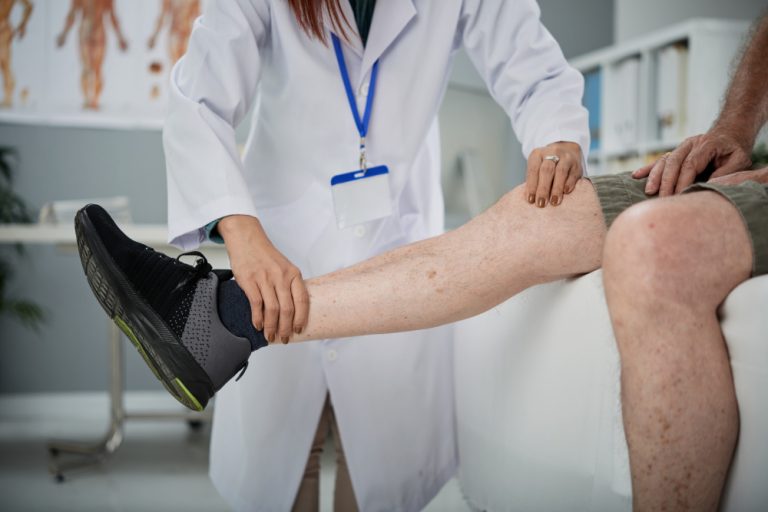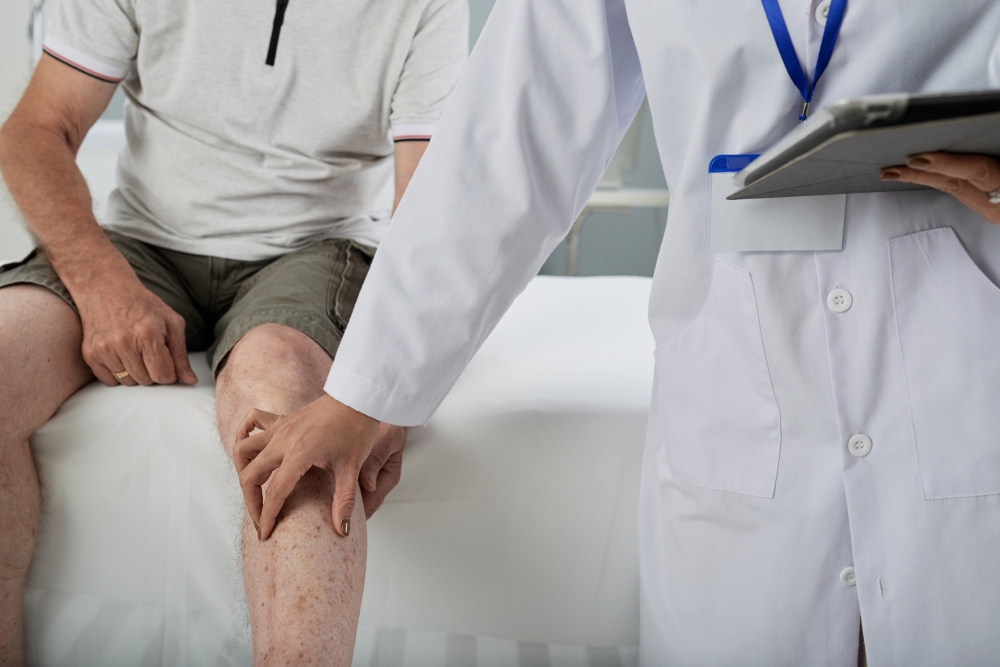5 Signs Your Knee Pain Might Need Arthroscopic Surgery - A Vadodara Orthopedic Specialist's Guide
By Dr. Kshitij Mody, Leading Arthroscopy Surgeon at Welcare Orthopedics Hospital, Vadodara
Have you been dealing with persistent knee pain that just won’t go away? You’re not alone. As an arthroscopy specialist in Vadodara, I see patients every day who have been struggling with knee discomfort for weeks, months, or even years. Many of them come to me asking the same question: “Doctor, how do I know if I need surgery?”
It’s a valid concern, and honestly, it’s one of the most important questions you can ask about your health. At Welcare Orthopedics Hospital in Vadodara, we believe in empowering our patients with knowledge, so let me walk you through the five key signs that suggest your knee pain might benefit from arthroscopic surgery.
Understanding Your Knee Pain: More Than Just Discomfort
Before we dive into the warning signs, let’s have a heart-to-heart conversation about knee pain. Your knee is one of the most complex joints in your body, and when it’s not working properly, it affects everything you do – from climbing stairs to playing with your grandchildren, from morning walks to your favourite dance moves.
As your trusted Arthroscopy surgeon in Vadodara, I want you to understand that not all knee pain requires surgery. In fact, we always explore conservative treatments first. But sometimes, your knee is trying to tell you something important, and recognizing these signs early can make all the difference in your recovery journey.


Sign #1: Pain That Persists Despite Conservative Treatment
Let’s be honest – we’ve all tried to “tough it out” when it comes to pain. Maybe you’ve been taking over-the-counter medications, resting your knee, or even trying physiotherapy for several months. If you’ve given conservative treatment a genuine effort for 3-6 months and you’re still experiencing significant pain, it might be time to consider arthroscopic surgery.
Here’s what I tell my patients at our arthroscopy hospital in Vadodara: your body is incredibly smart. When conservative treatments aren’t working, it often means there’s a structural problem inside your knee that needs direct attention. This could be a torn meniscus, damaged cartilage, or loose bone fragments that simply can’t heal on their own.
Real Patient Story: Just last month, I treated Priya, a 45-year-old teacher from Vadodara, who had been dealing with knee pain for over a year. She had tried everything – rest, medications, physiotherapy, even alternative treatments. Through arthroscopy surgery in Vadodara, we discovered a significant meniscal tear that was preventing her knee from healing naturally. Today, she’s back to her active lifestyle, pain-free.
Sign #2: Your Knee "Gives Way" or Feels Unstable
This is perhaps one of the most concerning symptoms I encounter as an arthroscopy specialist in Vadodara. If your knee suddenly buckles or gives way during normal activities – walking down stairs, stepping off a curb, or even just turning around – this instability could indicate serious internal damage.
Knee instability often suggests problems with:
- Ligament tears (like ACL or PCL injuries)
- Severe meniscal damage
- Cartilage deterioration
- Loose bone or cartilage pieces floating in the joint
The scary part about knee instability is that it puts you at risk for falls and further injury. Many of my patients describe feeling like they “can’t trust” their knee anymore. This lack of confidence in your own body can be incredibly limiting and emotionally draining.
Sign #3: Swelling That Won't Subside
Occasional swelling after a long day or intense activity is normal. However, if your knee remains consistently swollen, feels warm to the touch, or the swelling returns quickly after rest, this could indicate ongoing inflammation inside the joint that needs attention.
At Welcare Orthopedics Hospital, we often see patients who have been dealing with chronic swelling for months. This persistent inflammation can actually accelerate joint damage over time, making early intervention through arthroscopic surgery increasingly important.
What causes persistent swelling?
- Torn cartilage creating ongoing irritation
- Synovial inflammation (lining of the joint)
- Loose fragments causing mechanical irritation
- Chronic meniscal tears
Sign #4: Limited Range of Motion
Can you fully straighten your knee? Can you bend it completely? If you’ve noticed a gradual decrease in your knee’s flexibility, or if certain movements have become painful or impossible, this is a clear sign that something inside your joint needs attention.
Limited range of motion often indicates:
- Mechanical blockage from torn tissue
- Scar tissue formation
- Cartilage damage
- Joint stiffness from chronic inflammation
As your arthroscopy surgeon in Vadodara, I’ve seen how limiting this can be for patients. Simple activities like getting in and out of cars, sitting cross-legged, or climbing stairs become daily challenges.
Sign #5 :The "Locking" or "Catching" Sensation
This is one of the most distinctive signs that arthroscopic surgery might be necessary. If your knee occasionally “locks up,” gets stuck in one position, or feels like something is catching inside the joint, you likely have loose tissue or fragments that are mechanically interfering with normal knee function.
Many patients describe this feeling as:
- “Something is stuck in my knee.”
- “My knee catches when I bend it”
- “I have to shake my leg to get my knee moving again”
- “It feels like something is blocking my knee.”
These mechanical symptoms rarely improve with conservative treatment because they’re caused by physical obstructions inside the joint that need to be removed or repaired surgically.
Why Choose Arthroscopic Surgery?


Now, you might be wondering, “Doctor, why arthroscopy specifically?” As a leading arthroscopy specialist in Vadodara, I can tell you that arthroscopic surgery offers remarkable advantages over traditional open surgery:
Minimally Invasive Approach: We use tiny incisions (usually just 2-3 small puncture wounds) instead of large cuts, which means less pain, reduced scarring, and faster healing.
Precision Treatment: The arthroscopic camera allows us to see inside your knee with incredible clarity, enabling precise diagnosis and treatment of the exact problem.
Faster Recovery: Most of my patients at our arthroscopy hospital in Vadodara are walking the same day and return to normal activities much quicker than with traditional surgery.
Outpatient Procedure: Many arthroscopic procedures can be done as day surgery, meaning you go home the same day.
When NOT to Consider Surgery
It’s equally important to understand when arthroscopic surgery might not be the right choice. At Welcare Orthopedics Hospital, we believe in honest, transparent communication. Arthroscopy might not be ideal if:
- You have widespread arthritis (though it can help in specific cases)
- Your symptoms are mild and manageable
- You haven’t given conservative treatment adequate time
- You have unrealistic expectations about outcomes
- Other health conditions make surgery risky
Your Next Steps: What to Expect
If you’re recognizing these signs in your own knee pain, don’t panic, but don’t ignore them either. Here’s what I recommend:
Step 1: Schedule a consultation with an experienced arthroscopy surgeon in Vadodara. During this visit, we’ll discuss your symptoms in detail, perform a thorough examination, and may order imaging studies like MRI to get a clear picture of what’s happening inside your knee.
Step 2: Explore all your options. Even if surgery is recommended, we’ll discuss the procedure in detail, explain what to expect, and ensure you’re comfortable with the treatment plan.
Step 3: If you decide to proceed with arthroscopy surgery in Vadodara, we’ll guide you through every step of the process, from pre-operative preparation to post-surgical rehabilitation.
Frequently Asked Questions About Knee Arthroscopy
How long does arthroscopic knee surgery take?
Most arthroscopic procedures take 30-90 minutes, depending on the complexity of the problem. As your arthroscopy specialist in Vadodara, I always take the time needed to address your specific condition thoroughly.
Will I need to stay in the hospital overnight?
Most arthroscopic procedures are outpatient surgeries, meaning you can go home the same day. At Welcare Orthopedics Hospital, we prioritize your comfort and safety while minimizing disruption to your life.
How soon can I return to work after arthroscopy surgery?
This depends on your job and the specific procedure. Many patients with desk jobs return to work within a few days, while those with physically demanding jobs may need 2-4 weeks. We’ll create a personalized recovery plan for you.
Is arthroscopic surgery painful?
Most patients are pleasantly surprised by how manageable the pain is after arthroscopic surgery. The minimally invasive nature of the procedure means significantly less pain compared to open surgery.
What's the success rate of arthroscopic knee surgery?
very high, often 85-95% depending on the specific condition being treated. As an experienced arthroscopy surgeon in Vadodara, I’m committed to achieving the best possible outcomes for each patient.
How much does arthroscopy surgery cost in Vadodara?
The cost varies depending on the specific procedure and your insurance coverage. At Welcare Orthopedics Hospital, we believe in transparent pricing and will provide you with a detailed cost estimate during your consultation.
The Welcare Difference: Your Partner in Knee Health
At Welcare Orthopedics Hospital, we’re not just your arthroscopy hospital in Vadodara – we’re your partners in achieving optimal knee health and getting you back to the activities you love. Our commitment goes beyond the surgery itself; we’re with you every step of the way, from initial consultation through complete recovery.
As your trusted arthroscopy specialist in Vadodara, I’ve dedicated my career to helping patients overcome knee problems and reclaim their active lifestyles. Every patient’s journey is unique, and we tailor our approach to meet your specific needs, goals, and concerns.
Your Knee Health Journey Starts Here
Remember, recognizing these warning signs doesn’t mean you definitely need surgery – it means you need answers. The sooner you understand what’s happening with your knee, the more treatment options you’ll have available.
If you’re experiencing any of these five signs, I encourage you to take that important first step and schedule a consultation. Your future self will thank you for taking action today rather than letting the problem worsen over time.
At Welcare Orthopedics Hospital in Vadodara, we’re here to listen, understand, and provide you with the expert care you deserve. Your knee pain doesn’t have to be a permanent part of your life story.
Ready to take the next step? Contact Dr. Kshitij Mody and the team at Welcare Orthopedics Hospital, your trusted arthroscopy specialists in Vadodara. Your journey to pain-free living starts with a single phone call.
